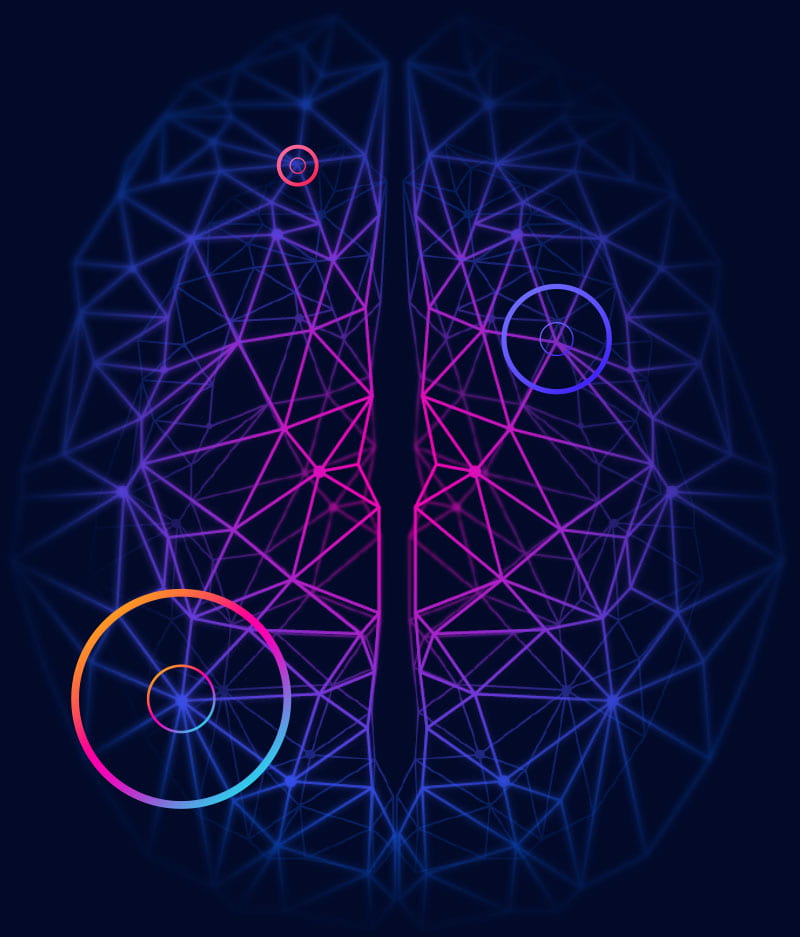Biomarker/Bio-types, Course of Early Psychosis and Specialty Care (BICEPS)
Through the gathering of medical history, psychological tests, brain scans, eye movement, and brain physiological tests, this study will try to identify clinical and biological indicators of early course psychotic disorders that could predict outcomes. The treatment is Coordinated Specialty Care.

Why participate?
By participating in this study, you can help us identify indicators of early psychosis that may predict outcomes. This information may help with treatment planning & tailoring of mental health services.
Am I eligible for this study?
Are you between age between 18-35?
In the last 3 years, have you had any unusual experiences lately that you cannot explain (such as hearing noises or voices, unusual visions), or difficulties in thinking clearly?
OR
Has a doctor ever told you that you may have schizophrenia, schizoaffective Disorder, Bipolar I Disorder with psychotic features or another psychotic disorder?
- If you are not sure if you were diagnosed with any of these, the study team can help figure this out
Is this study voluntary?
Yes, this study is 100% voluntary. Your participation (or not) will not impact any services you receive from project partners (e.g., The University of Chicago, Thresholds, etc.)
If you start the study, you can stop at any time.
What do I receive for participating in this study?
You can earn up to $420 over 12 months. Visit 1 reimbursement is $200, while follow-up visit reimbursement is $75. Travel reimbursement is also provided.
How will the research team keep my personal information confidential?
You will receive a study ID number that is unique and all of your personally identifying information (e.g., name, date of birth) will be removed from your study data. This is so if anyone ever came across the data, they would never be able to link it to you. Study documents with your name, contact information, and study ID are kept in locked cabinets and rooms, and digital versions are password protected and saved with firewall protections.
What is Coordinated Specialty Care?
Coordinated specialty care (CSC) is a team-based model for treating early psychosis. CSC promotes easy access to care, collaborative treatment planning, and shared decision-making among specialists and the person experiencing psychosis.
What is Thresholds?
Thresholds is the largest community mental health provider in Illinois with Coordinated Specialty Care Programs.
The University of Chicago team will partner with Thresholds.
Do I need to part of a CSC program?
Yes. Potential volunteers for this study must be a part of a CSC program, such as provided by Thresholds in the greater Chicago area. If you are not a part of a CSC program but are interested, the study team can give you information about that.
If you’d like to learn more click the link below or feel free to call/text us
Some of the things we do
CLINICAL INTERVIEWS About your feelings and experiences
Questions explore how you are currently feeling, mental health symptoms, how you are feeling about past & current symptoms, your relationships & how you spend your time.

Electroencephalogram (EEG)
You will have a type of electroencephalogram (EEG) in which a cap will be put on your head to record your brain waves. A gel that will wash off with water is used.
MAGNETIC RESONANCE IMAGING (MRI)
Magnetic Resonance Imaging (MRI) is a non-invasive way to take pictures of your brain while you lie quietly and as still as possible.
